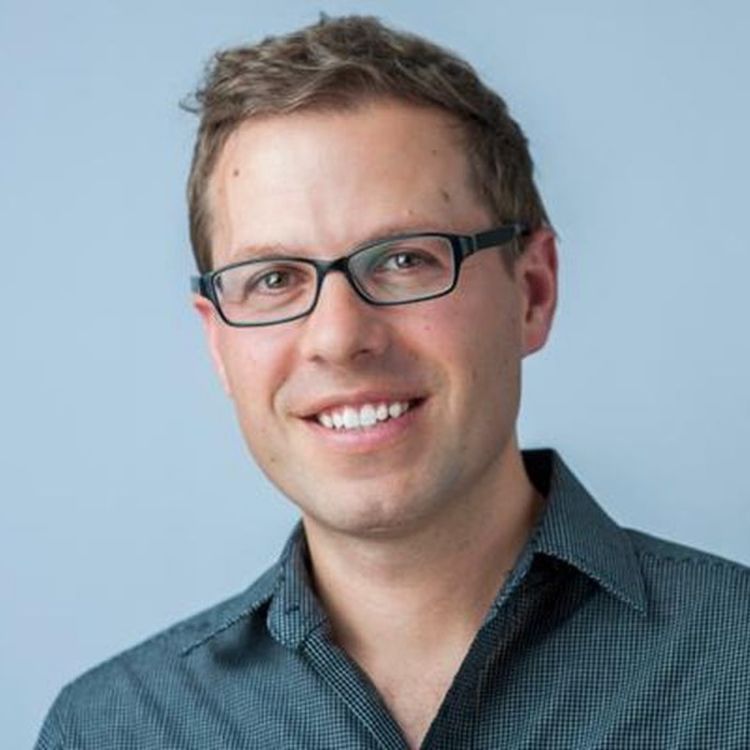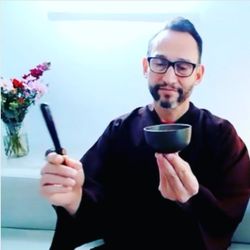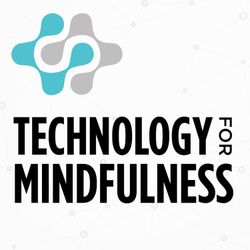Share

Technology For Mindfulness
60: David Ryan Polgar - How to Stop Oversharing Personal Data
In episode 60, David Ryan Polgar joins us for an engaging conversation around the history of digital wellbeing and what it means to be human in the digital age. David takes a different approach to how people should combat oversharing personal data and addiction to technology. Instead of focusing on what we, as end-users, need to do to combat overuse or misuse of technology, David focuses on transforming the ways that technology itself is deployed.
David Ryan Polgar is a 3-time TEDx speaker and tech writer. He’s known for his work in exploring the impact of tech from an ethical, legal, and emotional perspective. He’s been featured on CMS This Morning, USA Today, AP, LA Times, CNN, BBC, and more. David is also the founder of All Tech Is Human, which is an initiative to align the purpose of technology with what the end-users need to create a more human-centered society.
Some Questions I Ask:
- What motivated your work around digital wellness? What challenges did you face? (5:08)
- What organizations are you involved in? (34:35)
- How can people reach you and get involved with everything you’re doing? (44:47)
In This Episode, You Will Learn:
- Robert’s tip for mindfully granting access to applications. (0:58
- What a “mental food plate” is. (8:41)
- What prompted Robert to be mindful around granting apps permissions to his data. (17:32)
- Why advertisers’ targeting strategy became a massive collision course. (32:29)
- About David’s work with mental wellbeing with tech use. (39:22)
Connect with David Ryan Polgar:
Resources:
More episodes
View all episodes

95. 95. 5 Benefits of Social Media
20:19||Ep. 95Social media is an undeniable presence in everyone's lives nowadays; some kind of virtual connection touches even those who don't post every moment in their daily routines. And social media is not only omnipresent, but it also has a bad reputation for how it negatively influences kids, oppressed minorities, or people going through hard times in particular. Nevertheless, not everything is lost; we still have a lot of control over how we use technology and whether we decide to use social media for our own benefit or not. In this episode, we will focus on the benefits of using social media. We will list and explore five aspects that can be very beneficial not only for us but also for the community through the proper use of virtual connections. I invite you to discover how social media can strengthen relationships with friends and relatives, help us acquire better habits, assist introverts, reduce stigmas over diseases, leverage the students' experiences, and more. Tune in to Episode 95 of Technology for Mindfulness to view social media from a different perspective and perhaps give it a second chance. In This Episode, You Will Learn:Smartphones and advanced communication technology are not bad inherently; we choose what to do with them (1:25)Social media used as a means to connect with people we don't see very often or to seek support during challenging times (3:42) Social media and the creation of healthy and productive habits (6:07)How introverts can reduce their social anxiety in social media (10:18)Public figures showing up as mere humans and helping diminish the stigma over certain conditions, sexual orientation, and traumas (12:19)How students can use social media to make their learning process smooth and most effective (16:27)Resources:Pew Research Center - Demographics of Key Social Networking Platforms Pew Research Center - Teens' Social Media Habits and ExperiencesBook: Nicholas A. Christakis, James H. Fowler - Connected: The Surprising Power of Our Social Networks and How They Shape Our Lives -- How Your Friends' Friends' Friends Affect Everything You Feel, Think, and DoUSA Today - Interview with James Fowler: Fee-fi-foe-friend: Smell the blood of a kindred spirit?The Stigma Project - FacebookNational School Board Association - Grunwald Associates LLC: CREATING & CONNECTING: Research and Guidelines on Online Social — and Educational — NetworkingConnect with Robert Plotkin:Technology For Mindfulness WebsiteBlueshift IP WebsiteLinkedIn
94. 94. Dave Kenneally: The Common Misconception About Mindfulness Meditation
44:22||Ep. 94Many people believe that mindfulness meditation is about stopping thoughts from popping into our heads, which is, needless to say, impossible. As they can't prevent themselves from having thoughts, that belief makes them stop trying mindfulness meditation. Mindfulness meditation is not about preventing our minds from having thoughts but being aware of them. And being aware of those thoughts is different from knowing we have them; the difference might seem subtle but is massive. Today, my guest is the mindfulness teacher, Brother Dave Kenneally, former Sargeant in the US Marine Corps and former Buddhist Monk in the Zen Master Thich Nhat Hanh tradition. He travels the world spreading his knowledge, teaching business leaders, yoga instructors, cancer patients and their families, teens, and military veterans, among many others. He is a Certified Teacher of the Search Inside Yourself Program and an Ordained member of the Order of Interbeing. We had a joyful conversation about his mentors and their teachings along his journey and how they impacted him, the meaning of mindfulness, and the gifts the Zen tradition has to offer. He explained the concept of "understanding is love," and he also talked about why he decided to become a monk. Tune in to Episode 93 of Technology for Mindfulness and listen to Dave's fascinating story about love, reaching mindfulness, and awareness.Some Questions I Ask: What's your story and how did you get started with mindfulness? (5:23)Can you talk about where gentleness and self-compassion fit your own development and in your own teaching? (12:34)You've been talking primarily about attitudes towards yourself, your own feelings, your own thoughts, and cultivating it from that direction. If I'd like to be more compassionate, how do I just go ahead? (18:08)Is there anything you can share about how you've been able to bring your own mindfulness practices to bear on this extremely challenging time? (22:23)In This Episode, You Will Learn:Dave's definition of mindfulness (6:03)Yoga as a raw concentration practice (10:48)Understanding is love (13:32)One of the Zen practice's gifts (19:00)The consequences of being at war with our thoughts (31:50)Resources:Dave Kenneally websiteConnect with Dave:LinkedInFacebookInstagramYouTubeConnect with Robert Plotkin:Technology For Mindfulness WebsiteBlueshift IP WebsiteLinkedIn
93. 93. 5 Mindfulness Practices For Stressed Out Teachers
19:21||Ep. 93Most of the stress triggers that affect a teacher's routine can't be controlled by them—the parents' demands, budget cuts, and the difficulties that teaching in the virtual spectrum offers, to name a few. After a challenging 2020, it is not a surprise that educators deal with higher stress levels than any other profession. A recent study from the Robert Wood Johnson Foundation showed that nearly 70% of teachers reported a lack of engagement with their jobs and that 50% experience work-related stress daily. However, teachers can control something to reduce their stress levels inside and outside the classroom: their reaction to these stressors.In this episode, I want to share with you 5 mindfulness practices you can incorporate into your daily routine to empower yourself and manage your stress more efficiently. To hear more, tune in to Episode 93 of Technology for Mindfulness!In This Episode, You Will Learn:What a daily session of guided mindfulness meditation can do for us (2:37)The power of mindful walking (4:15)Deep breathing to exhale stress (7:54)Becoming aware of each part of our bodies (12:09)Writing about our sensations to learn from our emotions (13:49)Resources:Headspace appInsight Timer appCalm appMindful Teachers websiteMindful Schools websiteBook: Patricia Jennings - Mindfulness for Teachers: Skills for Peace and Productivity in the ClassroomConnect with Robert Plotkin:Technology For Mindfulness WebsiteBlueshift IP WebsiteLinkedIn
92. 92. Ryder Carroll: A Mindfulness Practice Disguised as a Productivity Method
37:48||Ep. 92In this day and age, we’re using technology for almost everything. Whether it’s for keeping notes, making to-do lists, planning your week, or simply sharing your thoughts, there’s an app for anything we need. But is using them always a good idea? Pen and paper have been used for centuries by people to keep track of their activities, come up with ideas, and organize their life. And there are certain benefits to using your hands to write things down - one of them being it allows your mind to focus on other things also. Today, I am joined by Ryder Carroll, the creator of the Bullet Journal Methodology – a mindfulness practice disguised as a productivity method, as he would call it. You will hear him talk about his method – how he came up with the idea, how it’s evolved over time, and how people are benefiting from it to keep track of tasks and manage a whole wide variety of life situations, by using just pen and paper. Ryder is also the author of the bestselling book The Bullet Journal Method, an essential guide to avoiding all-too-common beginner mistakes and building a core discipline from which you can personalize your practice. Tune in to Episode 92 of Technology for Mindfulness to learn how to focus your time and energy in pursuit of what’s truly meaningful to you and design your future in the process. Some Questions I Ask:What was the problem in your life that you didn’t see being solved by other types of task management, that caused you to come up with something new? (05:46)What are the key aspects of the Bullet Journal? (11:36)Are you encouraging people to explore what works for them individually? (18:29)Can you talk about how your active community uses the Bullet Journal Method? (19:49)Is there anything new that you’re coming up with for the Bullet Journal Method? (34:05)Do you have any advice for people on how they can benefit from the Bullet Journal? (35:15) In This Episode, You Will Learn:The beginnings of the Bullet Journal Method. (07:26)Why Bullet Journal is different from other productivity methods. (13:05)The powerful connection between your mind and your hand. (15:28)How to balance distractions. (16:49)How low-tech tools can sometimes be more useful than technology. (21:59)How pen and paper can help with using technology more intentionally. (25:24)The goal of the Bullet Journal Method. (27:27)How a notebook can become an extension of yourself. (32:20) Connect with Ryder:LinkedInInstagram Bullet Journal Resources:WebsiteBook: Ryder Carroll – The Bullet Journal Method: Track the Past, Order the Present, Design the FutureInstagramFacebookYoutubePinterest
91. 91. Mindfully Entering Into 2021
14:47||Ep. 91Throughout the past year, we’ve experienced lots of changes with regard to our relationship with technology. Some of them are positive shifts, like using video conferencing platforms more, to stay in touch with our loved ones. But many changes may have been negative also, like spending more time than usual on social media or watching the news more than we should have. For everyone, the impact technology has had in 2020 is different, but it’s important to spend some time reflecting on those changes, and recognizing which ones benefit us and what are the habits we formed that can become detrimental to our wellbeing moving forward in 2021. In today’s episode, I share with you the three steps to mindfully enter into the new year, and how to tackle each one so that you can be more in control of your relationship with technology. To hear more, tune in to Episode 91 of Technology for Mindfulness! In This Episode, You Will Learn:The three steps to mindfully enter into 2021 (01:20)Some examples of how 2020 may have affected your technology habits (02:25)The importance of reflecting on the changes that happened without you noticing (04:02)How to properly set your intentions for 2021 (08:00)The advantage of having a plan of action set in place for your intentions (11:58) Connect With Robert Plotkin:Technology For Mindfulness WebsiteBlueshift IP WebsiteLinkedIn
90. 90. Karlee Fain: Why Mindfulness is Our Most Effective Professional Tool
47:20||Ep. 90When it comes to setting our own boundaries, the thought can sometimes be a little daunting. Joining me today is Celebrity Business and Boundary Coach and Founder of The Boundary Academy, Karlee Fain, who is here to share her personal expertise on this topic, as well as discuss why mindfulness is such a valuable tool in both our personal and professional lives.In this episode, I ask Karlee a few pressing questions on how she made her start within the personal development industry, why becoming aware of our technological habits can help us to set clear boundaries, and the effect that the Coronavirus has had on our productivity levels. To hear more, tune in to Episode 90 of Technology for Mindfulness!Some Questions I Ask:What motivated you to pursue the field of life coaching? (6:47)What advice can you give to those who may not have as much time to dedicate to changing their nightly routines? (10:18)What issues do your coaching clients generally encounter? (14:11)How do you help individuals who don’t have a regular mindfulness practice start to notice their behaviors? (17:06)How do you help those who are completely new to mindfulness and personal development? (21:38)What could your techniques look like to someone who may not have as much leniency with their work breaks? (26:49)In This Episode You Will Learn:Why I believe in setting boundaries on your technology use (0:57)Why setting a ‘conscious plan’ in regards to your technology is a form of self-care (2:22)How pausing and staying present helped me to manage my news intake (12:00)How mindfulness, meditation, and respite can be leveraged as a business tool (18:47)The difference that having a cultural, social, and communal awareness can make (31:43)Some background on Karlee’s work & How the pandemic has made boundary setting so much more challenging (39:12)Connect With Robert Plotkin:Technology For Mindfulness WebsiteBlueshift IP WebsiteLinkedInConnect With Karlee Fain:Facebook Instagram Website
89. 89. Dr. Seku Gathers - The Flow State: Flowing to Heal Trauma
49:53||Ep. 89Trauma is a sensitive subject. Today, I’m joined by Life Coach, sought-after entrepreneur and Host of The Truth Prescription Podcast, Dr. Seku Gathers, who specializes in trauma coaching and recovery through one to one client work. By intertwining his knowledge as a former emergency physician with his extensive personal development expertise, Dr. Seku has created a practice built on seven core principles, otherwise known as the ‘F.R.E.E.D.O.M’ Method. In this episode, we discuss Dr. Seku’s philosophies on mindfulness, feeling ‘stuck’, and how the Coronavirus has impacted his clients. We also break down each of the main principles that make up Dr. Seku’s ‘F.R.E.E.D.O.M’ Method, Tune in to Episode 89 of Technology for Mindfulness to hear more! Some Questions I Ask:What are the most common things you see in your clients in regards to trauma? (9:43)How do you help people make the initial leap out of feeling ‘stuck?’ (17:14)Do you have any insights or words of encouragement for people on how to handle the current pandemic? (31:31)What are you seeing in your Coaching practice in relation to COVID-19? (33:23)How do you incorporate holistic wellness into your sessions? (40:27)What piece of advice can you leave my listeners with today? (45:00)In This Episode You Will Learn:A breakdown of my personal ‘order method’ & How it compliments Dr. Seku’s ‘freedom method’ (1:03)Some background on Dr. Seku Gathers (7:43)Dr. Seku’s perspective on optimism and maintaining a positive outlook (12:01)The difference between therapy and life coaching (14:28)How Dr. Seku builds strong client relationships & Why we need to stay objective when addressing our own ‘blind spots’ (22:48)Why detaching from our ego is so beneficial (28:04)Dr. Seku’s perspective on addiction and mindfulness (37:58)Connect With Robert Plotkin:Technology For Mindfulness WebsiteBlueshift IP WebsiteLinkedInConnect With Dr Seku. Gathers:Website: The Truth PrescriptionWebsite: Reshaping TraumaInstagram Facebook TwitterResources:Book: Total Body Wellness: The Truth About Your Health - Author, Dr. Sekuleo Gathers M.D.
88. 88. Thanksgiving and Gratitude
28:52||Ep. 88Whilst the holidays won’t be going ahead the way we’d all initially hoped, there are still plenty of ways we can enjoy this season together and make a few socially distanced memories to solidify the year we’ve all collectively gone through. I won’t sugar coat it, 2020 has been rough for a lot of us. Many out there are still recovering from the ongoing grief that this pandemic has brought with it and this time of year will be particularly difficult for those who have been directly affected by the virus. So, I wanted to take this episode as an opportunity to share my tips on how we can all make these upcoming months a little brighter. It won’t be an easy feat, but I believe that with an optimistic outlook and an open mind, we can make the end of this year one to remember. To hear more, tune in to Episode 88 of Technology for Mindfulness!What You’ll Learn:My advice on addressing the pressures COVID-19 has put on the holiday season (2:11)Why it’s important to practice gratitude during challenging times (3:19)How technology has allowed us to stay connected this year (7:10)Why I want to carry on the feeling of optimism beyond Thanksgiving (10:31)Why moderating our technology use during the holidays helps us to stay present (11:58)Ways to approach your virtual family gatherings (14:48)The benefits of getting together virtually (22:44)Connect With Robert Plotkin:Technology For Mindfulness WebsiteBlueshift IP WebsiteLinkedIn
87. 87: Overcoming Loss & Grief and Ways to Deal with It
29:57||Ep. 87In today’s episode of Technology for Mindfulness, I wanted to bring attention to the types of grief that this pandemic has brought upon so many of us. Whether it be the loss of a loved one, a job, or a relationship, this year has definitely taken its toll and it will take time before a lot of us are ready to heal.I’m going to be sharing a few of the strategies that have helped me throughout the course of isolation and take a deep dive on how and why we respond to loss in the ways that we do. I’ll also be discussing the many benefits that mindfulness brings into our lives and how utilizing these tools can aid us in overcoming bouts of personal grief. Tune in to Episode 87 to hear more! What You’ll Learn:The different types of loss that Covid-19 has brought (1:14)How we usually tend to respond to loss (7:28)Where addictive, habitual and often unhealthy routines stem from (9:22)The benefits that mindfulness brings into our lives & How people are leveraging technology to stay connected during the pandemic (11:42)My tips for dealing with loss in ways that aren’t aversive (15:38)Ways to stay social while physically distancing (18:20)Why taking breaks from technology is so important (26:24)Connect With Robert Plotkin:Technology For Mindfulness WebsiteBlueshift IP WebsiteLinkedInResources:Website: ‘JamKazam’